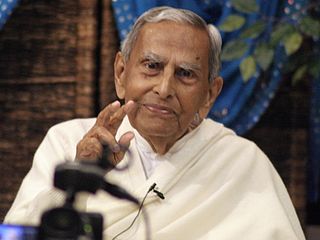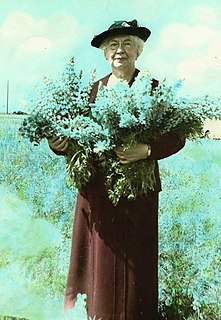Цитата Шри Шри Рави Шанкара
Если тебя огорчает чужое горе, то к тебе горе никогда не придет. Если вы счастливы чужой радостью, то радость никогда не покинет вас.
Темы цитат
Связанные цитаты
Могу ли я видеть чужое горе И не быть в печали? Могу ли я видеть чужое горе И не искать доброго облегчения? Могу ли я увидеть падающую слезу И не почувствовать доли моей печали? Может ли отец видеть свое дитя плачущим и не быть исполненным печали? Может ли мать сидеть и слышать Младенческий стон, младенческий страх? Нет нет! никогда не может быть! Никогда, никогда не может быть!
Разница между поверхностным счастьем и глубокой, поддерживающей радостью заключается в печали. Счастье живет там, где нет горя. Когда приходит печаль, счастье умирает. Оно не выдерживает боли. Радость, напротив, возникает из печали и поэтому может противостоять всякому горю. Радость, по благодати Божией, есть преображение страдания в стойкость, терпения в характер и характера в надежду, а надежда, ставшая нашей радостью, не становится (как должно быть счастье для тех, кто зависит от него). ) разочаровал нас.
Не должны ли мы время от времени открываться космической печали? ... Дайте своей печали все пространство и приют в себе, которые ей положены, ибо, если каждый честно и мужественно перенесет свое горе, печаль, которая сейчас наполняет мир, утихнет. Но если ты не расчистишь достойное убежище для своей печали, а вместо этого оставишь большую часть места внутри себя для ненависти и мыслей о мести, из которых родятся новые печали для других, то скорбь никогда не утихнет в этом мире и будет умножаться. .
Это учение Христианской Науки: божественная Любовь не может быть лишена своего проявления или объекта; что радость нельзя превратить в печаль, ибо печаль не хозяин радости; что добро никогда не может произвести зло; что материя никогда не может произвести разум, а жизнь не может привести к смерти. Совершенный человек, управляемый Богом, его совершенным Принципом, безгрешен и вечен.
В наш самый темный час, в моем глубочайшем отчаянии, Будете ли вы все еще заботиться? Ты будешь там? В моих испытаниях и невзгодах, В наших сомнениях и разочарованиях, В моем насилии и моем беспокойстве, В моем страхе и моих признаниях, В моей тоске и моей боли, В моей радости и моей печали, В обещании другого завтра, я Никогда не отпущу тебя, Ведь ты всегда в моем сердце.
Духовная Любовь рождается из печали. . . . Ибо люди любят друг друга духовной любовью лишь тогда, когда вместе перенесли одну и ту же скорбь, когда долгими днями пахали каменистую землю, погребенную под общим ярмом общего горя. Именно тогда они узнают друг друга, и чувствуют друг друга, и чувствуют друг друга в их общей тоске, и поэтому они жалеют друг друга и любят друг друга.
Печаль — это Божий лемех, который переворачивает и перекапывает глубины души, чтобы она могла принести более богатые урожаи. Если бы мы никогда не падали или были бы в прославленном состоянии, то сильные потоки Божественной радости были бы нормальной силой, раскрывающей все способности наших душ; но в падшем мире печаль, из которой выведено отчаяние, является избранной силой, чтобы открыть себя самим себе. Поэтому именно печаль заставляет нас думать глубоко, долго и трезво.








































